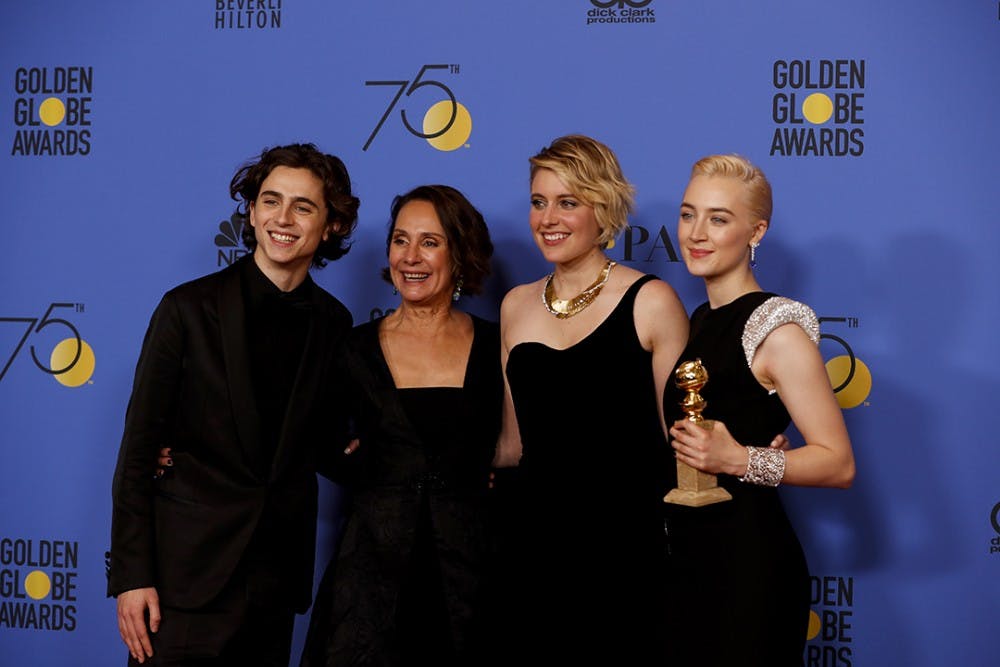The past 15 years have been a Renaissance for coming-of-age films. The film industry has begun to trade out aimless money makers in exchange for thoughtful and original stories. Here are a few gems that have challenged the status quo and opened doors for others like them.
Napoleon Dynamite (2004)
For a film that’s literally about nothing, “Napoleon Dynamite” has somehow managed to stand the test of time. For more than half of its running time, viewers are subjected to a compilation of random scenes that are irrelevant to the story at large.
The film follows high school slacker Napoleon Dynamite, as he aimlessly carries out his days in his sleepy town of Preston, Idaho. His older brother Kip spends his days chatting online with girls, his Uncle Rico is busy reminiscing about his high school glory days and his grandma couldn't care less about any of it. However, Napoleon finds companionship with his new classmate Pedro. When Pedro decides to run for class president, Napoleon tries to do his part to make sure his new friend wins the election.
For reasons unexplained, "Napoleon Dynamite" became a cultural phenomenon at the time of its release. You couldn't couldn't walk out of the house without seeing people wearing "VOTE FOR PEDRO" shirts or quoting some of the film's most memorable lines. I suppose its charm lies in the fact that its eccentric characters sprinkle absurdity over usually mundane situations. It's funny, simple and surprisingly has a lot of heart.
The Perks of Being a Wallflower (2012)
Merriam-Webster’s dictionary defines a wallflower as “a person who from shyness or unpopularity remains on the sidelines of a social activity (such as a dance).” That definition pretty much sums up Charlie, the film's protagonist.
At the start of the film, Charlie is feeling lonelier than ever as he struggles to adapt to high school. He's suffered from clinical depression since a young age, and the death of his favorite aunt only added fuel to the fire. It isn’t until he is taken under the wing of the flamboyant Patrick and the edgy Sam that he begins to blossom and find himself. At the same time, he finds out something that he wishes he didn’t.
"The Perks of Being a Wallflower" has everything that a coming-of-age movie should have. A flawed but empathetic protagonist, a group of colorful friends and a carefully curated soundtrack. Mark my words, 20 years from now “The Perks of Being a Wallflower” will be regarded as one of the quintessential coming-of-age classics.
Dope (2015)
Malcolm is an African-American teen who happens to be a geek and play in a punk rock band with his two friends. To his peers, this makes him an outcast. More than anything, he dreams of escaping his violent neighborhood and going to Harvard. However, his plans go awry when a series of unfortunate events unwillingly leaves him with the task of delivering a backpack full a drugs to a dealer.
"Dope" has its share of eccentric characters and outlandish situations. It's smart, fun and has a lot to say about society's understanding of stereotypes. Additionally, "Dope" cleverly combines both the social media age and the rise in hip-hop to create a film that speaks to the masses rather than at them. Compared to the other films on this list, I believe that "Dope" is the most reflective of millennial culture. It's also cool to see three minority actors lead a film rather than support it.
Moonlight (2016)
While this film's Best Picture win at the 89th Academy Awards was overshadowed by Warren Beatty's infamous flub, there's much more to the film's legacy. Barry Jenkins' directorial debut focuses on a gay African-American man named Chiron who comes to terms with his sexuality. Viewers follow him from childhood, to adolescence and then to adulthood as he deals with a drug-addicted mother, a rough neighborhood and first love.
Even in 2018, it's rare to find coming-of-age stories that shine a light on minorities. "Moonlight" shows that not only can minority-driven films succeed, but also that they showcase voices we need to hear. Stories like these shouldn't come second to stories that are considered more "mainstream" — they deserve just as much recognition.
Lady Bird (2017)
In her directorial debut, Greta Gerwig paints an authentic portrait of female adolescence through the eyes of her titular heroine. Unlike most of her peers, Christine ‘Lady Bird’ McPherson has a taste for high art and sophistication. However, she feels artistically stifled at her small school in Sacramento and unsatisfied with her life at home.
Although Christine wants to attend a liberal arts college in New York City, her mother doesn’t think that she has the work ethic and suggests that she just stay at home. Set on proving her wrong, Christine reinvents herself as ‘Lady Bird’ and navigates her senior year of high school with that end goal in mind.
What makes "Lady Bird" different from other female driven coming-of-age stories is that this one was actually written and directed by a female director, and it shows. Not once does '"Lady Bird" feel like a romanticized version of growing up. Christine auditions for the school play, fights with her mom and hangs out with friends in the school parking lot. The high school experience isn't too exaggerated or outlandish for it to be enjoyed onscreen. And Christine isn't perfect either. At times, she can be self-centered, aloof and brash. However, it's her flaws that make her feel less like a caricature and more like a human. I know this girl, you know this girl and you can't help but root for her.

